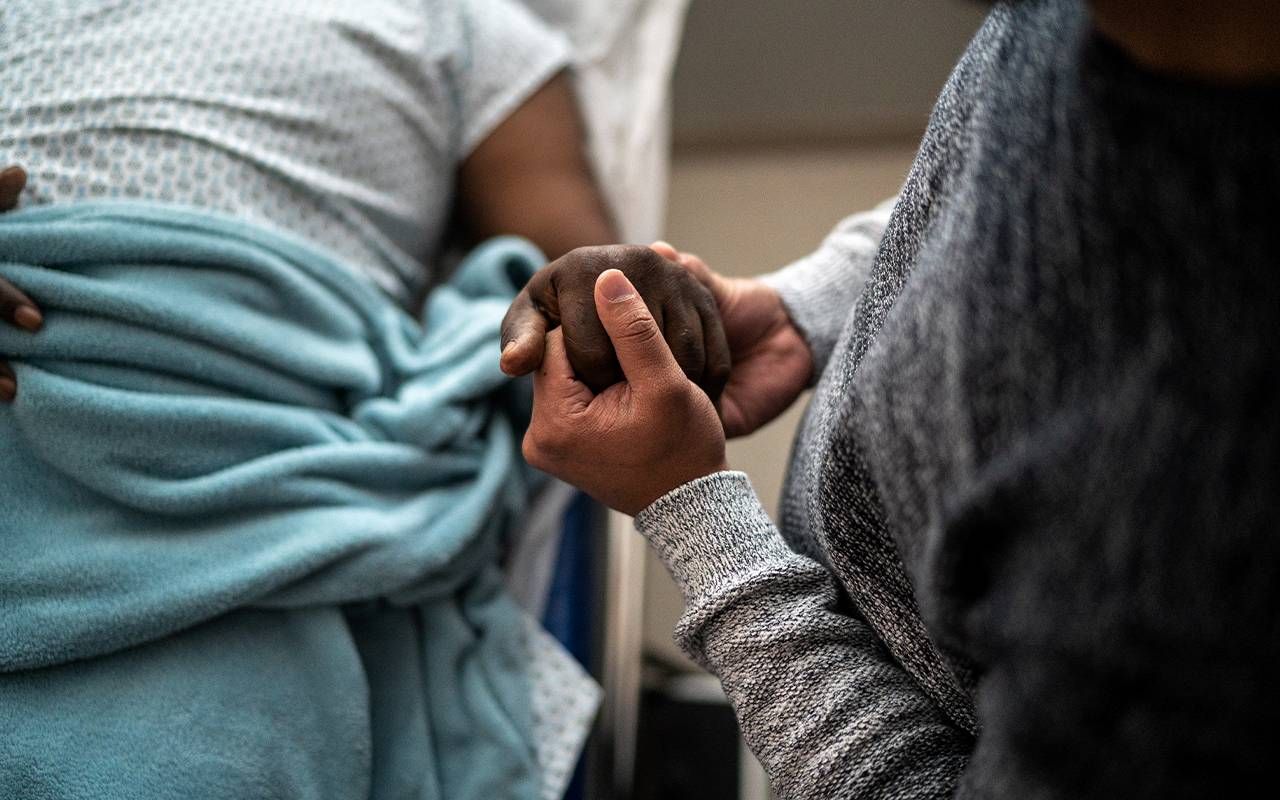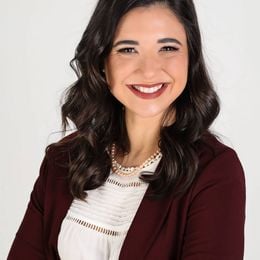In the Hospital? Don't Overlook the Chaplain
Professional chaplains help people connect to their source of strength and make meaning from their experiences
Chaplains are the hospital's best-kept secret.
Best-kept secret from patients, that is. Most of the hospital staff has figured out just how helpful chaplains can be, and will call the chaplain for everything that's difficult, scary or just plain weird: an unruly patient, a patient who received terrible news, a nurse who believes a hospital room is haunted, a mistress who showed up while the patient's wife is in the room.

As a chaplain, I'm used to people reacting with a measure of fear ("Am I dying?"), dread or disinterest when I introduce myself. Once, when I was a newbie chaplain, I was called to the emergency room to be with the family of a two-year-old who had been severely injured in an ATV accident. As soon as I arrived, the grandmother screamed, "No! They called a chaplain for my mother, and she died."
I can't tell you how many times people have responded to my introduction with "Thanks, but I'm Jewish / not religious / already saved."
Chaplains are automatically associated with bad news. The disinterested reactions seem to come from a misconception of what chaplains do. I can't tell you how many times people have responded to my introduction with "Thanks, but I'm Jewish / not religious / already saved."
It's understandable for people to assume that chaplains are motivated to convert people to a set of beliefs, impose their religious practices or only serve people of a particular religion, but professional chaplains would frown upon any of these practices.
Chaplains as Patient Advocates
Professional chaplains are highly trained to help people integrate their experiences with what gives them meaning and hope. A board-certified chaplain has completed a master's degree and clinical training and has demonstrated competence as a chaplain before a certification committee, in addition to other requirements. They serve in many settings, including hospitals, long-term care facilities, hospice organizations, prisons and even business organizations.
In hospitals, chaplains are highly attuned to patients' needs, which makes them excellent patient advocates. While the whole health care team is charged with caring for each person with compassion, the job of accompanying the patient in their suffering and caring for their spirit is uniquely reserved for chaplains.
Helping People Connect to Their Source of Strength
For many, faith and spiritual practices are powerful expressions of meaning and a source of strength in difficult times. Others experience meaning and purpose through relationships or their unique contributions to the world. Chaplains help people connect to their source of strength and to make meaning from their experiences. At times, this means enabling or advocating for a patient's religious or cultural values.
Chaplains are usually the calmest people in a crisis — we are trained to be a "calming presence."
Even in the rural, predominantly Christian area where I work, I have fulfilled requests for spiritual Native American music, the Quran, and a call to a Jewish cantor. In emergencies, I have performed baptisms, weddings and vow renewals. I have said prayers, and I have read poems.
Because chaplains get to know patients on a deeper level, they are often well positioned to translate the patient's needs to the care team. It turns out that "difficult" or "non-compliant" patients often have valid concerns about their care plan. A patient threatening to leave against medical advice sometimes just needs to feel heard.
Chaplains are usually the calmest people in a crisis — we are trained to be a "calming presence." While the medical team is working against the clock to stabilize a patient or to solve a problem, the chaplain is the one person who can slow down and focus on the anxious patient or family.
Treating the Whole Person
Treating the whole person is important to chaplains, so they will often go out of their way to ensure the patient and family are comfortable. Sometimes that means finding warm blankets, bringing extra chairs for family members, making sure long-term visitors have access to a shower and toiletries, checking on the patient's contacts by phone (this was especially needed during the pandemic), and securing special food and drinks.
I have scoured the hospital for hot tea for a Japanese woman in labor, and once left the hospital during a blizzard with the palliative care doctor in order to buy a milkshake for a patient.
I have scoured the hospital for hot tea for a Japanese woman in labor, and once left the hospital during a blizzard with the palliative care doctor in order to buy a milkshake for a patient (I am trusting you with this secret. Please don't abuse your chaplain's good will).
The best thing about chaplains, though, is that in the moments that are so painful that everyone else wants to look away — those moments when no one knows what to say or do — chaplains will lean into the pain in order to be there with you. They will crawl into the darkness with you and remind you that you are not alone.
The Intimate Strangers in People's Stories
In the hospital, people experience the full gamut of human emotions. Some may be flying high with the birth of a child or the long-awaited good news that a treatment is working, while others are suffering the lowest blow, such as a devastating diagnosis that will forever alter the course of an individual or family. Both the highs and lows bring change and disruption, and both can be sacred. Chaplains are there for all of it, the intimate strangers in people's developing stories.
I realized that what enabled this person to reconnect with his sense of hope was not so much what I did during our visit as much as it was about what my presence signaled to him.
For those who believe in God or a higher power, it is in those extreme times that they may need assurance of a divine presence the most and feel it the least. Sometimes simply having another human present in difficult times is enough to foster hope. For some, a chaplain presence brings additional meaning.
A nurse once asked me to see a man who was "cantankerous" and depressed. I listened with empathy as he said he was ready to give up on living, and ready to give up on God. He felt as though God had abandoned him. Sometime during our visit, I offered to provide a prayer; he accepted. When I stopped by to check on him the next day, I found him with a renewed sense of hope. He said, "I know God was in that prayer, so I know he must have sent you to see me."
I realized that what enabled this person to reconnect with his sense of hope was not so much what I did during our visit as much as it was about what my presence signaled to him. It was a reminder that, for some, my calling as a chaplain is in itself a representation of the divine presence, even when it feels absent.
In moments like these, I realize that perhaps the best-kept secret is how rewarding it is to be a chaplain.


